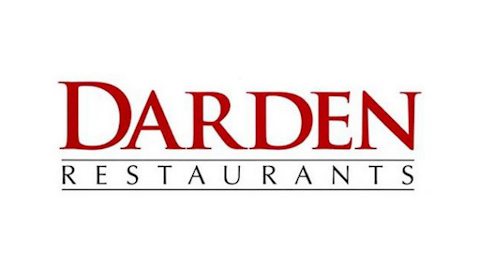Over the past couple of years I’ve become quite the connoisseur of eating out on the town. Or to put it another way: Lazy guy who doesn’t want to cook for himself, right here!
The restaurant industry in itself has faced innumerable challenges since the recession, including balancing the right menu price with food portions on their menu, adapting their menus to ever-changing consumer palates, and finally, having the ability to pass along food inflation on to the consumer without scaring them to another establishment or back into their homes. A vast majority of restaurants, from fast-food diners to casual eateries, have done a very good job.
Chipotle Mexican Grill, Inc. (NYSE:CMG) and Buffalo Wild Wings (NASDAQ:BWLD) would be two perfect examples of companies that have bridged the gap of tepid consumer spending and figured out a way to grow rapidly and bring consumers into their stores.

Source: weareDC2009 Scholars, Flickr.
For Chipotle Mexican Grill, Inc. (NYSE:CMG), it’s drawn in traffic by focusing on the value of its meals relative to the quality of product it serves. Whereas many of its fast-food hamburger peers have dealt with allegations over the quality of their meat or food products over the years, Chipotle Mexican Grill, Inc. (NYSE:CMG) instead works out contracts with local farmers to bring fresh vegetables to its restaurants, and has a “Food With Integrity” pledge on its home page that ensures it uses meats that are hormone and antibiotic-free.
In the case of Buffalo Wild Wings (NASDAQ:BWLD) it’s used promotions, associations, and specialties to draw in traffic. With a specialization on wings, Buffalo Wild Wings (NASDAQ:BWLD) has relied on wings’ hand-in-hand association with sporting events and used that relationship to plan its customer-drawing activities and events (are you ready for some football?). To add, it hasn’t hurt that chicken prices have been under control recently.
Two pressing concerns for the restaurant industry
However, there are two pressing concerns I have for the restaurant industry moving forward, and, surprisingly, they are not consumer driven. In fact, they aren’t food cost-driven, either! Confused? Curious? Let me explain.
Both problems that I think have the potential to turn the restaurant industry on its head relate to the relationship between a company and its employees. If you recall, I’m a big proponent in investing in businesses that value their employees. I strongly believe that employee happiness is a big reason businesses succeed or fail, and you’ll often find a very uncanny correlation between the quality rankings of a company on employee survey site Glassdoor and a company’s share price.
What two factors might be threatening straining this company-employee relationship in the restaurant industry? I thought you’d never ask!

Source: Florian Plag, Wikimedia Commons.
Obamacare plays Whac-a-Mole with employees’ paychecks
Please understand that this hasn’t been the case with every single restaurant chain, but a good number of restaurants have been cutting back employees’ hours below the 30-hour full-time mark as defined by the Patient Protection and Affordable Care Act, also known as Obamacare.
The reason is that beginning on Jan. 1, 2015, the employer mandate will require companies with 50 or more full-time employees to provide health-care plan options to those employees. The bill doesn’t state that these businesses have to pay a cent toward their workers’ premiums, but if the IRS concludes that an employee was forced to pay more than 9.5% of his or her annual out-of-pocket income for health insurance, that business will face a fine of $2,000 to $3,000 for each employee for which it is found to be in violation. Ouch!
Instead of even remotely chancing the possibility of being fined, many restaurants, especially in the fast-food industry, have scaled back hours and are hiring on an almost exclusive part-time basis.
While this does, to some extent, help explain why approximately three out of every four jobs created this year is part-time in nature, and it will probably help some of these workers obtain a bigger subsidy when it comes to obtaining insurance on the state-run exchanges, it’s going to put a big dent in the pocketbook of these employees when it comes to other walks of like, such as their mortgage/rent, car payment, utilities, and so on.
Fast-food chain The Wendy’s Co (NASDAQ:WEN) made headlines in early January when a franchise owner in Nebraska decided to cut some 300 non-management employees’ hours in order to avoid the responsibility of providing health care to full-time employees. As you look around nowadays, you’ll notice almost exclusively part-time hiring in the fast-food sector. On the bright side, while this does help create jobs and lower the unemployment rate, it doesn’t help pad workers’ pocketbooks, since the pay is often well below full-time standards and the hours make it difficult to pick up a second job.
Other companies have done their best to come back from the brink and do right by their employees. Darden Restaurants, Inc. (NYSE:DRI), which operates Red Lobster and The Olive Garden, tinkered with the idea of hiring more part-time workers earlier in the year but noted that having their 45,000 full-time employees present was more important, since many of these employees had established relationships with the company’s regular customers.
Despite Darden Restaurants, Inc. (NYSE:DRI)’s best efforts, quite a few restaurant industry employees may find their paychecks cut in the coming months as we near the full enactment of the employer mandate in 2015. Falling paychecks do not instill a level of worker pride, which is especially concerning for fast-food restaurants.
The IRS sticks its nose in the restaurant industry and complicates matters
The other worry I have relates to comments made by the Internal Revenue Service (stop rolling your eyes!) last week that it will, on Jan. 1, stop counting automatic gratuities — the automatic 15%-20% tip that some restaurants automatically add to your bill for a party of eight or more — as tips and begin counting them as service charges.
For the consumer there’s little to no impact based on this change. In parties of eight or more at restaurants that had exercised this practice, consumers could simply choose to tip less than the restaurant would previously have automatically added onto their bill. But for the restaurant and employee, this is a big change — and a demoralizing one for the employees of select casual-dining establishments.
Put plainly, if restaurants choose to continue charging an automatic gratuity beginning in January, they’ll need to ring that transaction as a service and account for that extra sum of pay in an employee’s wages. Previously, being counted solely as a tip, it was entirely the workers’ responsibility to collect the money and report it to the IRS.
What does this mean to employees? First, it means a delay in receiving their pay if the business has to ring the automatic tip as a service. If you get paid on a biweekly schedule, that could mean anywhere from two to three weeks to get your hourly plus automatic gratuity tip pay. In addition, it ensures that all automatically added tips get taxed as ordinary income. Under the current system, the IRS presumes that restaurant employees are honestly and truthfully reporting and accounting for all their tips on their tax filing — which is likely in some cases, but nowhere near a reality.
How could this affect restaurant employees? I suspect by demoralizing them off even further! Can you imagine being a server in the restaurant industry and having hours scaled back to part-time in the fast-food industry and having the IRS clamp down on your automatic gratuities in the more casual-dining restaurants? You can’t win no matter where you work!
To use Darden Restaurants, Inc. (NYSE:DRI) as an example again, it recently announced, in lieu of the IRS’ new guidelines, that it will end the automatic gratuity on its receipts. Darden Restaurants, Inc. (NYSE:DRI) just didn’t see any reason to do the extra service-charge legwork in keeping the automatic gratuity charge. While that may help its servers and employees in the end, those larger parties also serve as a nice chunk of change come pay time. If consumers pare back their tipping on large parties, casual-dining restaurant employees could be put in a bind.
What’s an investor to do?
Despite some select strong results within the restaurant industry, I’m treading very cautiously and would suggest you do the same. Thankfully for investors, Obamacare and the new IRS guidelines are staggered by a year and won’t hit all at once. However, it’s hard to overlook how restaurants will drive new traffic when their most precious asset, their employees, could be burdened with smaller paychecks for the foreseeable future.
The article Will These 2 New Guidelines Cripple the Restaurant Industry? originally appeared on Fool.com and is written by Sean Williams.
Fool contributor Sean Williams has no material interest in any companies mentioned in this article. You can follow him on CAPS under the screen name TMFUltraLong, track every pick he makes under the screen name TrackUltraLong, and check him out on Twitter, where he goes by the handle @TMFUltraLong.The Motley Fool owns shares of, and recommends, Buffalo Wild Wings and Chipotle Mexican Grill. It also owns shares of Darden Restaurants.
Copyright © 1995 – 2013 The Motley Fool, LLC. All rights reserved. The Motley Fool has a disclosure policy.




